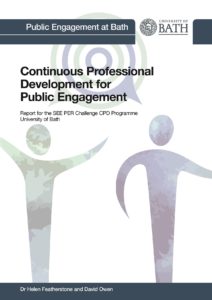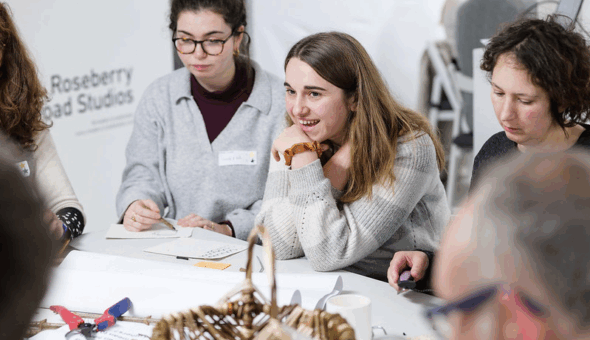We have been working on ChallengeCPD since October last year. ChallengeCPD looked at continuous professional development (CPD) and training for public engagement. This was because CPD is seen as necessary for effective public engagement, but it is often not used and sometimes not perceived as training. We spent time looking at our own practice, looking at the academic literature and having discussions with a wonderful group of critical friends from the University and beyond.

Here are some of our concluding thoughts:
- When is continuing professional development recognised as CPD and by who? In particular, giving consideration to how we support researchers to reflect on activities they have taken part in, not only to improve those activities, but also to look at their role in their professional development so that it can be captured as part of formal reward and recognition procedures.
- Learning can take time to be realised. We need far greater time lags in our evaluation efforts. How often do people use the resources? How have activities improved over time?
- Surface existing skills and competencies. Professional development is not necessarily about new knowledge or behaviours but helping people become conscious of what they already know.
- Involve participants in the development of CPD interventions. This might include user-testing, train the trainer models, and overall design.
- Public Engagement CPD tends not to address quality. Much of the CPD we found and deliver facilitates awareness raising and participation in PE, rather than making PE better.
- Language of CPD. We still need to find more appropriate language. Training is sometimes the least offensive, other options include researcher development, academic development, personal and professional development, reflective practice.
- The role of external partners in supporting CPD is not acknowledged. They often provide formative feedback and insights into audiences etc. There is professional development in organisations hosting researchers, buddying, acting as mentors or offering co-location working sites.
We also noted that many of the challenges around CPD for PER are not unique to PER training and professional development – there is a complex and varied culture of professional development within HEIs.
Our full report is available now: SEE PER Report August 2018 FINAL
We have also produced a rough guide for those who are developing training: Rough Guide training researchers
Respond


